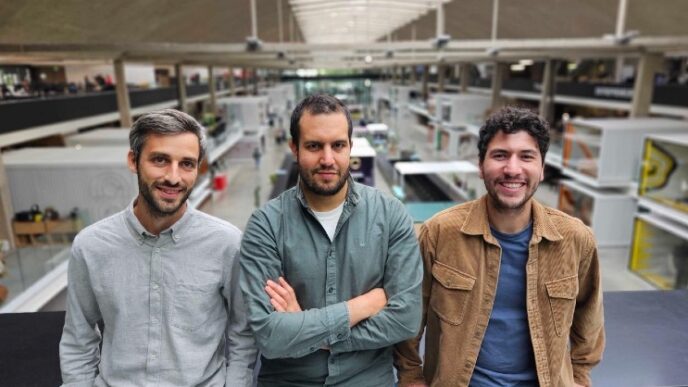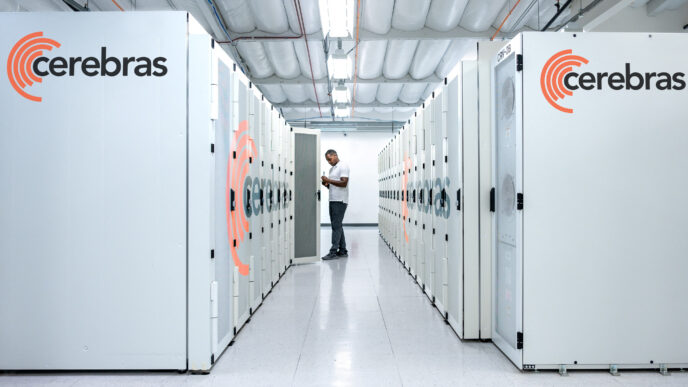Nvidia may dominate the AI hardware world, but one London startup believes that grip doesn’t have to be permanent. Spectral Compute, a quietly growing deep-tech company, has raised $6 million to tackle one of the most frustrating challenges in modern computing: the rising Nvidia chip lock-in that keeps developers tied to a single ecosystem.
For years, Nvidia’s GPUs have powered everything from training large AI models to running heavy scientific workloads. The real engine behind that dominance is CUDA, Nvidia’s proprietary programming platform. CUDA gives developers the tools to turn graphics processors into general-purpose computing machines, unlocking massive performance gains.
But there’s one major catch, apps built in CUDA don’t easily run on anything else. If a company wants to shift from Nvidia to AMD, Intel, or a new semiconductor startup, it often faces long engineering cycles, expensive code rewrites, and plenty of risk.
Spectral Compute is trying to change that story. The company is building a software framework that lets CUDA-built applications run on other chips with far less friction. CEO Michael Søndergaard said the goal is simple: give developers the freedom to choose the hardware that suits their needs, not the hardware they’re forced into.
He explained that Spectral is “building something compatible with CUDA” so teams can write and test software in the Nvidia ecosystem, then have it run on competing GPUs with almost no changes. In other words, Spectral wants developers to keep the benefits of CUDA without being locked inside Nvidia’s walled garden.
Spectral Compute isn’t new to the challenge. Søndergaard founded the company in 2018 alongside Chris Kitching, Nicholas Tomlinson, and Francois Souchay. For years, the team has focused on solving a technical problem that even big chip companies have struggled to crack.
Right now, the company’s framework, called SCALE, supports specific AMD architectures. But Spectral’s roadmap is much bigger. The team plans to expand across Intel GPUs and even upcoming chips from next-generation semiconductor startups, creating a future where CUDA-based workloads aren’t stuck on one vendor’s silicon.
SCALE is already making its way into the hands of researchers. The tool is free for non-commercial use, and Spectral partners with academic institutions that often rely on cheaper or more accessible hardware. For commercial use, Spectral licenses its platform based on deployment needs, offering flexible models for cloud providers and tailored solutions for enterprises running large on-premise systems.
This isn’t the first attempt to break free from Nvidia chip lock-in. The open-source project ZLUDA, once backed by AMD, tried to build similar compatibility layers before AMD eventually pulled its support and requested code removal. That left many developers wondering whether CUDA portability was simply too difficult, or too politically risky, to pursue.
Søndergaard believes Spectral’s approach stands apart. Instead of working at the binary translation layer, the company uses a source-by-source model, working directly with the original CUDA code that developers create. This approach keeps ownership clean, respects Nvidia’s licensing rules, and avoids the gray areas that complicated other attempts.
He emphasized that Spectral stays within Nvidia’s permitted usage: the company doesn’t rely on proprietary internal components or break any platform restrictions. Everything is built in a way that developers can confidently adopt in large-scale production environments.
The startup’s $6 million seed round was led by Costanoa, with additional backing from Crucible and several well-known angels. With this funding, Spectral plans to expand its product capabilities, speed up its go-to-market efforts, and grow its team beyond its current 19 employees.
As AI workloads surge and GPU supply remains tight, many companies are looking for alternatives to Nvidia, not because Nvidia’s chips are weak, but because its dominance has created bottlenecks. Developers want cheaper options, more flexible hardware choices, and a way out of long-term platform dependence. If Spectral Compute succeeds, it could loosen the single-vendor grip that has shaped the AI hardware landscape for more than a decade.
And for the first time in years, CUDA-locked companies may finally have an exit.













